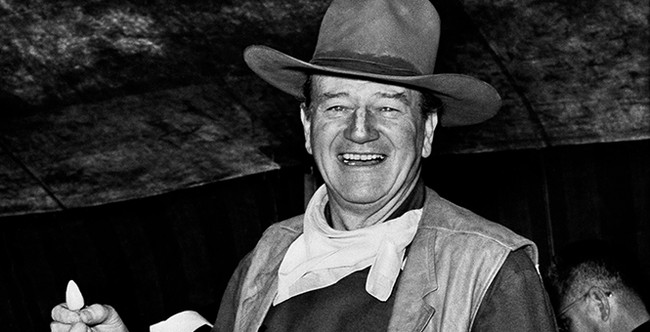By David Manney
I am a huge John Wayne fan. I grew up watching his movies, soaking in the grit, strength, and unspoken code he brought to every role. He didn’t just play heroes; he defined what it meant to be a man in a world that respected strength paired with decency.
There was a time in America when the question didn’t need asking.
Masculinity was a virtue, not a liability. It meant something. Not an identity crisis waiting to happen, but a foundation for society: men who worked hard, stood up straight, took care of their families, and didn’t ask for applause.
You could find it in a handshake, a father’s lecture, or in the quiet resolve of a farmer up before dawn. You could see it on screen, too. John Wayne didn’t have to spell it out. He just stood there, firm and unshaken, and the audience knew. He was the kind of man who said little, meant everything he said, and would stand before a bullet if it meant protecting the innocent.
Today, we sometimes ask sheepishly and defiantly: Is it okay to be masculine again?
That we even have to ask is a warning sign.
The Vanishing Point
In the past few decades, there has been a cultural shift that has treated traditional masculinity with suspicion, not a specific type of man but the very notion of manhood. Young boys are told their instincts to compete, protect, and achieve might be problematic. Men who show stoicism are told to emote more. Men who lead are accused of overshadowing others. Men who defend are asked to check their privilege.
What began as a well-intentioned critique of brutishness evolved into a blanket of suspicion of strength itself. Suddenly, masculinity was no longer something to aspire to; it was something to be pathologized.
The result? A generation of confused young men unsure whether to pursue strength or apologize for it.
John Wayne Didn’t Ask Permission
John Wayne didn’t wonder if it was okay to saddle up. He just did. Because courage was not the absence of fear, it was fear, bridled and ridden through. He once said, “Courage is being scared to death but saddling up, anyway.” That line wasn’t just a script. It was scripture for men who understood that doing the hard thing didn’t make you dangerous; it made you dependable.
Wayne’s characters didn’t stomp around, proclaiming their manhood. They proved it in silence, in grit, in action. They defended others. They stood their ground. And when the fight came, they fought with purpose, not pride.
Misunderstanding the Mission
Masculinity is not aggression. It is not cruel. It is not domination. At its best, it is provision, protection, and principle.
A masculine man doesn’t belittle women. He honors them. He doesn’t silence others. He speaks up when others are too afraid. He doesn’t use strength to coerce. He uses it to carry burdens others cannot.
But today, the cultural message has been muddled. Strength is framed as a threat, confidence as arrogance, and leadership as tyranny. We have mistaken counterfeit masculinity for the real thing, and in rejecting the counterfeit, we’ve also thrown out the original…
READ FULL ARTICLE HERE… (pjmedia.com)
Home | Caravan to Midnight (zutalk.com)






